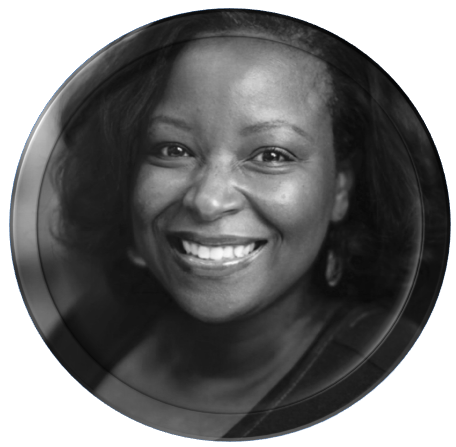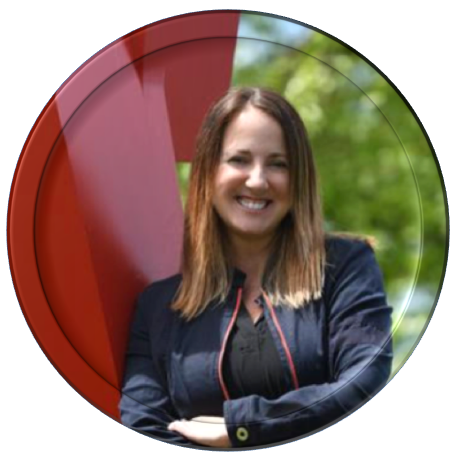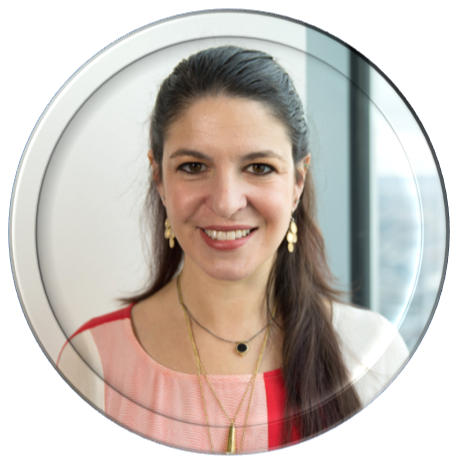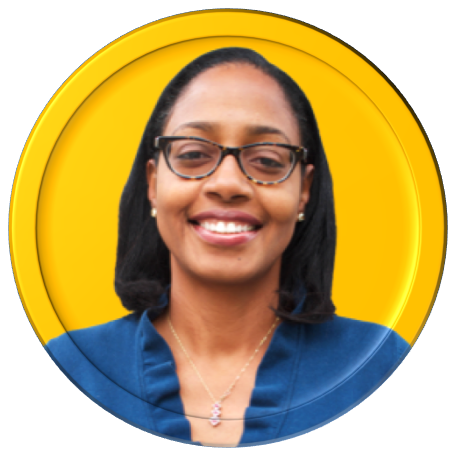The Diva Tech Talk team was grateful to have the amazing experience of attending Grace Hopper Conference 2018. We highlighted many conference details, discussed the Abie awards, and shared the voice of attendees on the Episode 73 Podcast. If you didn’t get a chance to listen, please check it out here: http://www.divatechtalk.com/blog/ep73
There was so much material and insight that we had to create another article and episode for our listeners to stay with us on this journey. This podcast features a special announcement for our listeners.
One incredibly worthy outcome of the Grace Hopper Conference and the AnitaB.org effort is the Top Companies report for women in technology. This is a national program that identifies key trends around the representation of women in the workforce. First launched in 2011, it pairs wonderfully with the conference “vibe.” Although there are many other female technologist benchmarking programs, this is the only one that measures technical employees using a rigorous, standardized definition of the technical workforce. The 2018 Top Companies report was compiled with participation by 80 companies, 628,000 + technologists with 150,000 + women technologists in that group. Congratulations to the companies who took top honors for female tech diversity for 2018. They include: HBO Inc, Morningstar, Inc, Securian Financial, ThoughtWorks, XO Group, Airbnb, Blackbaud, GEICO, State Farm, Ultimate Software, Accenture, Bank of America, Google, IBM, and SAP. Every company is scored along the spectrum of seven identical metrics. There is no weighting nor subjective or black-box evaluation of the results. Everything is simply data-driven, with pure statistics. Special Diva Tech Talks “shout-out” to Tarsha McCormick and Shuchi Sharma, two leaders in that cohort we were fortunate to interview.
The complete Grace Hopper Conference 2018 Press Release on Top Companies is here: https://anitab.org/news/press-release/2018-top-companies-report/
In addition to the keynotes, and breakouts on topics ranging in complexity from exploratory data analysis to mentoring, there were also some amazing women with whom we spent time to capture their experiences for our Diva Tech Talk audience. After reviewing their insights, the Diva Tech Talk team is proud to announce a new Diversity Leadership Series, following this event. The series will feature senior level leaders from a variety of organizations, who lead diversity and inclusion programs in their respective organizations. In this Grace Hopper Event Recap podcast, we include audio teasers for these full-length episodes, rolling out over the coming weeks and months. Here are some of the women we will include in our upcoming Diversity Leadership Series:
Monica Bailey, Chief People Officer at GoDaddy, the world’s largest company managing domains and domain names for the worldwide Internet (www.godaddy.com)
Monica prides herself on being a very strong advocate for diversity at GoDaddy. She spoke about her opportunity to lead, creating an even playing field for everyone through specific targets, and highlighted research from a Stanford study. She shared applicable, real world tips to help expand workplace equity.
“Having seen a lot of things I loved in the industry and also having seen a lot of things I didn’t want to repeat, I got to take all of that and make GoDaddy a company we all want to work for.”
One of her recommended mental exercises to inspire and focus you is: “Take 2 minutes to do an ‘I believe in _____’ ”
Monica believes “there is enough pie for everyone”. It's a grounding philosophy. She wants to discourage enervating and demotivating competition. “I don’t want my folks to compete with each other. Together, we are way better, than we are apart. When it comes to promotion velocity at my company, I wanted to make sure everyone has equal access to promotions and career advancement, but I didn’t want any of my employees to suffer so other employees could benefit.”
“We just decided to build diversity into everything we did. It doesn’t live in a silo.”
“There is a ton of unconscious bias built into people and processes.”
“By the nature of not being really specific about what you are looking for, you are excluding a large group of people”
Sonja Gittens Ottley, Head of Diversity and Inclusion at Asana, a company that provides a world-class application for teams to track their work with greater ease, clarity, accountability, and efficiency.(www.asana.com). Asana is one of Fast Company's (www.fastcompany.com) Most Innovative Companies, the top work-tracking vendor on Forbes's inaugural Cloud 100 list, and the only enterprise software application to win Google's 2016 Material Design Award
Sonja never thought she would be in a technology field. She is a lawyer by trade, but after a temporary job with Yahoo doing management and consulting in 2005, technology “hooked” her. She began working on a human rights program at Yahoo, and then naturally pivoted into a diversity and inclusion specialty.
“In my role, I get to work across the entire company, which allows me to be thinking about it in two aspects. Diversity is really about how you are thinking about the people that are coming into your company. That allows me to think about recruiting. How are we attracting the best applicants from everywhere and how are we ensuring they are assessed in a really fair manner? The inclusion part is how are we ensuring that they get here. The culture is really supportive of inclusion as well as supporting those communities that are existing in the company. I think about it as those two pillars. And one cannot exist without the other.”
“People inside the company needed to understand how people outside the company were using products. Part of that involved having people inside the company who looked like those people and had those perspectives.”
“Imagine the product that we could build if people inside the company reflected those users. The potential of that is so huge.”
“Because we talk about diversity and inclusion or we talk about women in engineering all the time, we have an understanding of it. But we often forget that this is new and uncomfortable for a lot of people --- to talk about race or gender or any other identities that people possess. It is an uncomfortable topic. So, I want us to be doing more work to get people more comfortable to being in that sort of icky place of comfort because I think that is how you change things. I don’t think you do it by ‘saying this is too hard, so I am not going to touch it.’ It has to be ‘this is hard, I need to know why this is hard.’ ”
Tarsha McCormick, Head of Diversity and Inclusion, North America for Thoughtworks (www.thoughtworks.com), which is a loosely-confederated community of passionate individuals, whose purpose is to revolutionize software design, creation and delivery, while advocating for positive social change.
“I’m a great example of someone who was given some opportunities, and was able to make a way where society probably said I shouldn’t have a way. I fell into the tech industry by chance. I would like to say it was intentional, but it wasn’t. But once I got into the tech industry, I realized how important it was for people of color, for women, and for other marginalized groups to have a say in what we are doing in technology because it really is impacting all of our lives. So I am very passionate about what I do in the diversity and inclusion space because I know we all have a voice, but unfortunately we all aren’t being heard right now.”
“Diversity has always been sort of baked into the fiber of who we were as an organization, but honestly we were not always intentional. We were doing it on an adhoc basis. And as we continued to grow, we saw the disparity of women in other under-represented groups in the tech industry. We realized we had to be more intentional with our approach.”
“Diversity is important, but more importantly I think you have to pair that with inclusion. We can get people from different backgrounds and race and gender and socioeconomic status, etc, but if they don’t feel like the workplace is supportive. If they don’t feel like it’s a place where they can be their authentic selves and they can grow and learn, we aren’t going to retain them.”
Shuchi Sharma, Global Lead for Gender Intelligence at software industry giant, SAP (www.sap.com), a 4.5-decade old solutions leader:
“I started my career as a scientist. I studied chemistry with the aim of being a doctor, but then realized that probably wasn’t the best option for me for many reasons. What I actually excelled in was economics. I went into management consulting for many years in healthcare. I loved technology. I discovered technology in that line of work.”
“What I observed was that women were not really helping one another. I saw that opportunities were being missed because of that. They were missing opportunities to help each other excel. I thought ‘well what can I do about this,’ so I founded an organization dedicated to women’s leadership and professional development.”
“Be comfortable with failure. If you aren’t failing, you're not trying new things.”
Rebekah Bastian, Vice President of Community and Culture at Zillow Group (www.zillow.com), the leading cloud-based real estate and rental marketplace
Rebekah leads Zillow’s efforts around equity, belonging, and social impact. She was also one of Zillow’s first employees. Prior to that, she worked at Microsoft.
“I ended up getting degrees in mechanical engineering, following things that were interesting to me. First time I ever went to college was for music and I failed out. I just wasn’t quite focused enough yet. When I did start going back to school, I started taking a series of classes that were interesting to me and it led me to math and physics. I was pretty good and liked the problem-solving and exploration that went along with it. I ended up transferring to the University of Washington and getting a Mechanical Engineering degree. After that, I ended up at UC Berkeley getting a masters in Mechanical Engineering.”
“I did answer an ad on Craigslist and was one of the first employees here. Zillow was still in stealth startup mode, so I didn’t really know what I was going to be working on.”
“We generally have this philosophy: hire better than yourself.”
In addition, we got to meet with Dr. Paulette Gerkovich from Micron (www.micron.com), a 40-year old semiconductor giant.
Senior Director, Diversity and Inclusion, Paulette offered a vast amount of knowledge from her years of experience in the field of diversity and leadership. It was incredible to hear about her data-driven diversity development mindset and some of her cool work at Catalyst (www.catalyst.org), a 56-year old nonprofit working with some of the world’s largest companies and CEO’s to accelerate the progress of women in the workforce .
We are excited to add this special series to the Diva Tech Talk “mix” along with our traditional podcast format. We know it will be a great fit. It will continue to inspire women in the field of technology, and the unique perspective these leaders share will get you thinking about companies you might work for in the future or do work for today. We still continue our tradition of learning about women’s personal journeys, but the series goes deeper into what it means to lead a diversity effort, and innovative ways to approach the challenge to get more diversity and inclusion in technology.
We hope you enjoy this teaser and look forward to the upcoming series as much as we do. Make sure to subscribe today so you don’t miss an episode.
Follow us on Twitter - @divatechtalks
Visit us on Facebook -https://www.facebook.com/divatechtalk
If you like this podcast, please subscribe on your favorite podcast channel.






